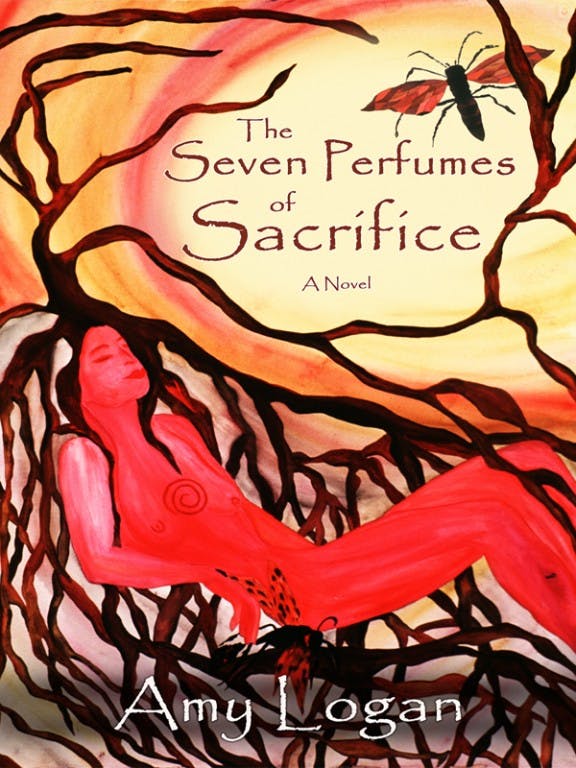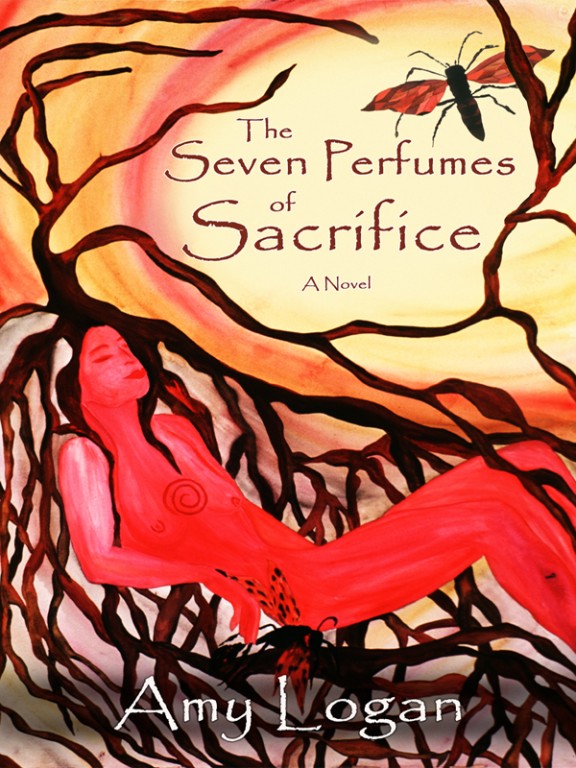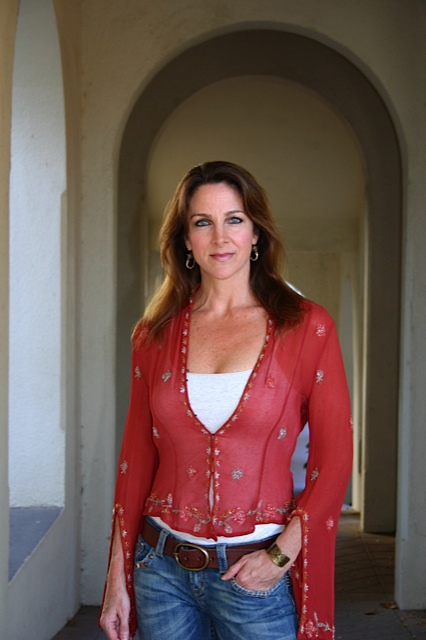Controversial Debut Novel Offers Theory of Origins of ‘Honor Killing’ of Women
Jan 21, 2015
First story



A provocative debut novel, The Seven Perfumes of Sacrifice (www.7perfumes.com), explores the ancient, lost origins of so-called “honor killings” in the Arab world. Seems straightforward enough – except there were no books, articles or dissertations on such specifics of the practice. And that dearth of information was just what galvanized author Amy Logan to devote a decade to digging up where, when and why the femicidal custom got its start.
“There are cultures whose majority support – even compel – such violent behavior and I just really wanted to understand why,” says Logan. What she found in her research was the origins of honor killing were considered unknown, Islamic (which she learned is incorrect) or pre-Islamic. “There’s a heck of a lot of history before the 7th century,” she says. “If honor killing were pre-Islamic, why did the researchers and reporters stop asking questions there?”
For those unfamiliar with the practice, honor killing is the murder of a female (usually) by a family member (almost always male) for perceived promiscuity, disobedience or other transgressions of gender norms that bring public shame upon the family in the traditional societies of the Middle East, the Indian subcontinent and North Africa. The U.N. estimates 5,000 women and girls are reported murdered annually for honor, but the unreported number could be substantially higher.
Finding no published answers to her questions, Logan, 45, started asking people from the countries where honor killing traditionally occurs and quickly discovered it was taboo to discuss – never mind to stand up to. “That’s when it dawned on me that this conspiracy of silence had permitted honor killing to go on unabated for a long, long time – and would continue to if no one spoke up.”
The body count got Logan, who lives in California, wondering how many women and girls in the world have to live in constant fear under the life-long death threat of honor killing as part of their culture. “Amazingly, I couldn’t find a number published anywhere; I started to think I might be the most curious person in the world about this.”
So, she calculated the figure herself: It could be as high as 800 million. “At least I believe that is how many women and girls live under extremely oppressive cultures where their most personal choices are not their own and probably most of them could be murdered, maimed or abused if they fail to toe the line,” she says. With that unimaginable number in mind, she was even more determined to grasp the underpinnings of honor killing and expose what she found. “I had this feeling that if the origins of the practice were deconstructed and finally understood, it might help to end it,” she says. Out of that passion, a fictionalized story began to come alive in her imagination.
Logan first learned of honor killing in the ’90s when she traveled to Israel on a press trip as a travel writer. She spent an afternoon in a Druze village – a secretive, Arabic-speaking, thousand-year-old offshoot of Islam who live in the hill towns of Israel and several other neighboring countries. (The Druze are the fascinating culture in which she sets her story, too). There she learned they commit honor killings. “I didn’t know what it was at first, but I somehow distinctly felt that my life after I heard those words was going to be very different than before.”
Indeed, a few years later, Logan managed to set up several extremely rare homestays with the Druze in Israel and observed and interviewed many of them – “as much as they would let me, anyway.” At home and abroad, she painstakingly followed her instincts researching across different disciplines and interviewing scholars, social workers and NGOs for clues to the origins of honor killing. “A sensible person would’ve written a dissertation and gotten a Ph.D. out of it,” she says with a grin, but “just a curious activist-artist,” she wasn’t enrolled in an academic program.
Slowly, she built a theory of the ancient, lost origins of the practice of honor killing. “What I didn’t expect to discover was that honor killing appears to be one of the lingering legacies of a pivotal time of transformation in history that has largely been swept under the rug. I learned shocking things that I wish I – and everyone – had learned in school,” she says. Her revelations are intertwined with the plot of Seven Perfumes.
Logan will concede that she didn’t find another culture besides the Druze that have published in contemporary times that it’s permissible to kill for the sake of honor. “They certainly may exist and I encourage my readers to share with me what they know or discover to add to my theory.” But she emphasizes that the Druze are not alone in practicing honor killing.
Speaking up about such a controversial topic isn’t for the faint of heart. “Of course I’m aware my novel may ignite a contentious response and loads of criticism – the honor killing cultures don’t want more attention brought to their violent and oppressive traditions because change is uncomfortable,” says Logan. “But the fact that they’re usually embarrassed by it tells me they know on some level it’s not fully serving them and they’re ready for change. I expect the Islamaphobes in the West who are using honor killings as a reason to spread hatred will be angered by my book, too. But they’re not looking for solutions. My desire was to write a book with the potential to awaken people in a positive way and inspire a transformation of the way women and girls are treated throughout the world, not just ‘over there’. For me, that well outweighs the risks.”
The Seven Perfumes of Sacrifice was released on March 8, International Women’s Day. It’s available on Amazon as an ebook and trade paperback. For more information, visit http://www.7perfumes.com.
The Seven Perfumes of Sacrifice
by Amy Logan
$4.95 US (Amazon ebook), $14.95 US (Amazon trade paperback)
ebook ISBN: 978-0-9853080-0-1
Trade paperback ISBN: 978-0-9853080-1-8
267 pp (trade paperback)
Priya Press, San Francisco
Pub date: March 8, 2012




